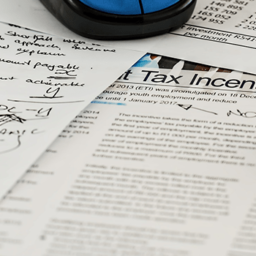
If you want to buy commercial properties, you need to have a good amount of expertise. You should know that having the right capital to buy a certain property is not enough to make you a good investment. You should be familiar with market conditions.
Buying a commercial real estate can be a good investment for your business, especially if you want to reduce costs by using it to your own operations rather than pay a lease to another party. However, before you buy commercial real estate, there are a number of factors to consider, ranging from the financial health of your own company to the viability of commercial real estate, you have in mind. It is important to understand that these types of investments are made after careful consideration and analysis of the potential return on investment.
1. Analyze the benefits of buying commercial real estate, and risks. One advantage of buying commercial real estate could be that if you buy to maximize your return on investment, it, in most cases, provides more off-lease. In addition, if your company has significant benefits, you can offset those at tax time by claiming depreciation on your property.
In addition, although only for tax purposes, you may request amortization, owner of commercial property adds to your appreciation of assets over time, meaning that the equity of your business grows.
The risk of buying commercial real estate may be that the choice of location will not withstand real estate trends. A location that is in high demand this year may lose all commercial appeal next year, and that affects the property value and the attraction of your business if it operates out of this place.
Another risk of investing in commercial real estate may be loss of liquidity. When a company invests hundreds of thousands of dollars of commercial property, which is money that is not readily available. Even if it is not likely to be a problem when the company is good, in tough economic times, it can be difficult to sell a property to release the funds invested. If you intend to rent your commercial property, it is important to understand that renting is not a secure form of cash flows. Tenants may be behind in their payments, or even neglect to pay at all, and if you are dependent on the income it can be a stressful situation.
2. Assemble a group of experts to advise you. You will need an accountant, lawyer, real estate sales agent and a mortgage broker on your team.
Your accountant can discuss the financial aspects and options to purchase commercial real estate.
Your lawyer can help you prepare contracts for the purchase or lease a property. A commercial real estate agent can alert you to properties in the area viable. A mortgage broker can work with you to obtain financing for your investment property.
3. Choose a commercial property purchase. The considerations before buying are location, condition of the property, which uses the company is authorized, is how accessible to customers and suppliers, and what possibilities offer rental and resell. In addition, make sure to do a title search, you know that the property is not compromised by a pre-existing agreement and check the zoning and development plans to see what types of businesses are allowed in this where and what types of adjustments of infrastructure and city planning could affect the property.
4. Ensure the financing of commercial real estate. Make sure before you apply for a mortgage, you have covered the down payment and income tested to cover the monthly payments.
5. Buy commercial real estate with your lawyer to explain all the details of the sale agreement, so you know exactly what your rights and obligations.





